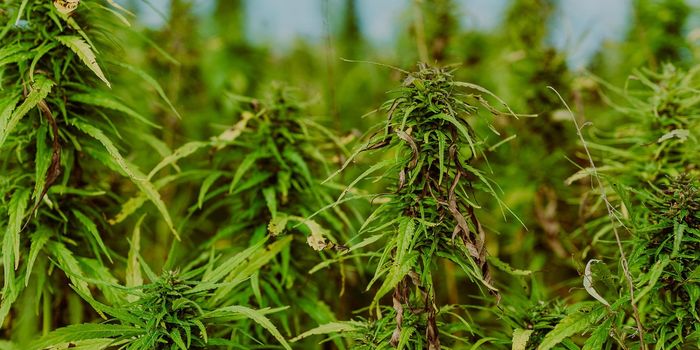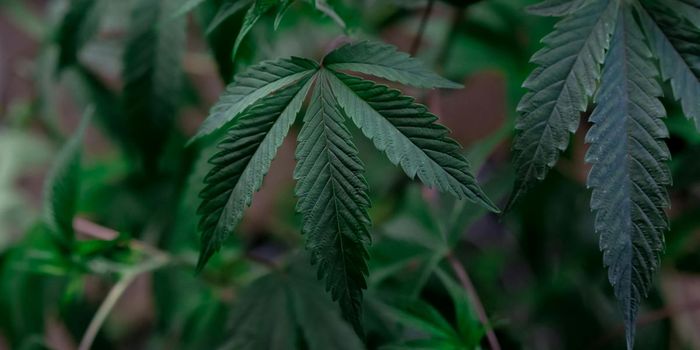THC & ASD: A Crucial Contributor to Symptom Alleviation
Up until recently, cannabis-based treatments for Autism Spectrum Disorder (ASD) have focused on CBD-enrichment and THC diminution. According to a new study published in Translational Psychiatry, however, THC may play a more critical role in the biochemical cascade responsible for ASD symptom alleviation than was previously thought.
In a human-based Shank3 genetic mouse model of ASD, the study initially sought to investigate the behavioral and biochemical effects of chronic treatment with a CBD-enriched oil from an Indica-dominant Avidekel strain (CBD:THC concentration ratio of 20:1). Behavioral tests demonstrated significant reduction in anxiety and repetitive autistic-like behaviors relative to untreated controls following chronic exposure to Avidekel oil.
Given that cannabinoid type I receptor (CB1R) activation leads to a decreased release of glutamate in glutamatergic synapses, along with its prominent role in the endocannabinoid system, CB1R activation was investigated as a potential molecular mechanism contributing to the observed behavioral changes. Treatment of the Shank3 mutant mice with both Avidekel oil and CB1R antagonist doubled the time spent exhibiting repetitive grooming behavior, while CB1R blockade in controls elicited no change. Furthermore, treatment with CB1R agonist in controls significantly decreased the repetitive behavior.
To further investigate the role of neurotransmission regulation in symptom alleviation, the research team performed high-performance liquid chromatography with fluorescence detection (HPLC-FD) analysis on CSF samples from Avidekel oil-treated mice, as well as RNA-sequencing (RNA-Seq) analysis on cerebellar samples.
HPLC-FD analysis of glutamate and gamma-aminobutyric acid (GABA) concentrations detected a significant reduction in glutamate concentrations (over 90% relative to the controls) but no significant change in GABA concentrations. RNA-Seq analysis revealed significant differential expression (DE) of several autism-related genes, ion-channel encoding genes, and heat shock protein encoding genes following Avidekel-oil treatment.
To ascertain whether CBD-enrichment is required to elicit the observed symptom-alleviating effects, Shank3 mutant mice were treated chronically with either THC-based Erez oil from an Indica-dominant Israeli strain (1 mg/kg THC; no CBD); isolated CBD oil (25 mg/kg, same as the CBD concentration found in Avidekel oil); isolated THC oil (1 mg/kg THC, same as the THC concentration found in Erez oil); or olive oil (control mice). The same behavioral tests and biochemical assays employed on Avidekel-treated mice were performed.
The results demonstrated that CBD alone does not have a significant effect on the anxiety, social, locomotor, and repetitive behaviors of the Shank3 mutant mice. On the other hand, treatment with only THC decreased repetitive behaviors and markedly improved social deficits. Similar to THC treatment as expected, Erez oil treatment also decreased repetitive behavior and improved social deficits.
HPLC-FD detected significantly decreased glutamate and increased GABA concentrations in the CSF of Erez oil-treated mice. This change in the E/I ratio represents a decrease in the concentration of extracellular glutamate, indicative of an overall decrease in brain excitation. Treatment with CB1R antagonist in Erez oil-treated mice demonstrated responses similar to those observed in Avidekel oil-treated mice following CB1R blockade. The authors conclude that CB1R signaling in the ECS mitigates the alleviation of repetitive behavior induced by both Avidekel (THC+CBD) and Erez (THC) oil treatment.
From these results, the authors propose that CBD-enrichment of medical cannabis is unnecessary for symptom relief in individuals affected by ASD. Instead, they suggest employing a low concentration of THC in medical cannabis oils. The improved responses observed in mice treated with cannabis oil blends (Avidekel and Erez oils) relative to the isolated cannabinoids alone is attributed by the authors to most likely be a combined result of the other Cannabis compounds present (a phenomenon referred to as the “entourage effect”).
Sources: Translational Psychiatry; Nature; Aurora Medical; Handbook of Behavioral Science; iHeartJane; Labroots









